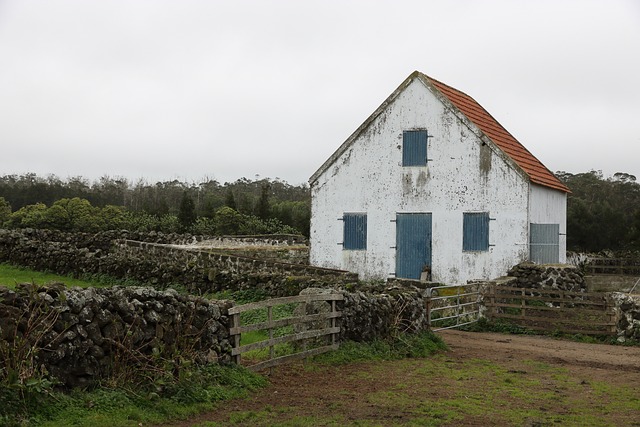In Bendigo, choosing between steel and wooden farm sheds for agricultural purposes involves weighing various factors including climate resilience, maintenance requirements, lifespan, environmental impact, and sustainability. Steel farm sheds are highly durable, offering long-term durability against Bendigo's climate with minimal maintenance beyond washing and touch-ups to prevent rust. They are ideal for farmers who prioritize low-maintenance and longevity, with the added benefit of reflecting heat, potentially reducing cooling needs. Wooden farm sheds provide natural insulation and can be constructed from responsibly sourced timber, offering a sustainable option that complements the region's landscapes. However, they require regular treatment to maintain structural integrity and prevent decay. Both materials contribute to sustainable agriculture but differ in their environmental footprint; steel farm sheds have a lower maintenance demand but higher initial energy inputs, while wooden ones offer natural beauty with the need for ongoing care. The decision should be informed by considering the local climate, intended use, and commitment to sustainability throughout the shed's lifecycle, ensuring that the chosen material supports Bendigo's agricultural operations effectively and responsibly.
In Bendigo’s diverse agricultural landscape, discerning farmers weigh the merits of steel and wooden farm sheds. This comprehensive analysis delves into the durability, cost, maintenance, customization, and environmental impact of both materials, aiding in informed decisions for sustainable agriculture practices. Steel and wooden farm sheds serve as critical assets on Australian farms, each offering unique advantages and considerations tailored to Bendigo’s regional climate and terrain. Understanding the nuances between steel and wooden structures ensures that your investment stands resilient against environmental demands while accommodating your operational needs.
- Durability and Material Resistance: The Longevity of Steel vs. Wooden Farm Sheds in Bendigo's Climate
- Cost Considerations: A Comprehensive Breakdown of Initial and Long-Term Investment for Steel and Wooden Farm Sheds
- Maintenance Matters: The Ongoing Care Required for Steel and Wooden Farm Sheds in Bendigo
- Customization Capabilities: Tailoring Your Farm Shed to Suit Unique Needs and Aesthetics in Bendigo
- Environmental Impact: Evaluating the Eco-Friendliness of Steel and Wooden Farm Sheds in Sustainable Agriculture Practices
Durability and Material Resistance: The Longevity of Steel vs. Wooden Farm Sheds in Bendigo's Climate
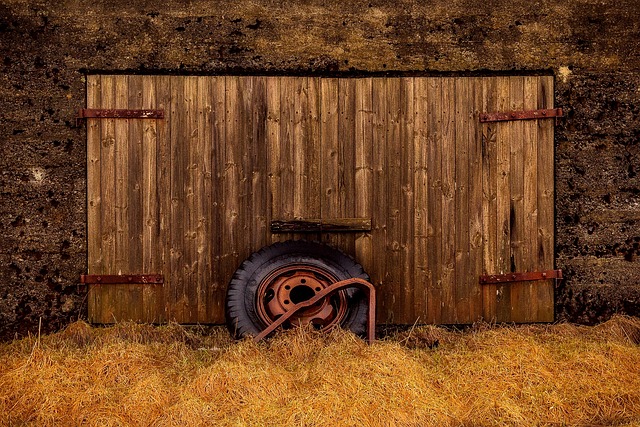
In Bendigo, the durability and material resistance of farm sheds are critical factors for farmers considering their investments. Steel farm sheds offer a distinct advantage in terms of longevity, thanks to their corrosion-resistant properties. The local climate, characterized by variations in temperature and potential moisture from both rainfall and humidity, can take a toll on structures. However, steel’s resistance to rust and decay ensures that it maintains its integrity over time, offering a structure that can endure for decades without significant maintenance or repair. This makes steel an attractive option for farmers looking for a long-term solution with minimal upkeep.
On the other hand, wooden farm sheds have their own charm and can be a sustainable choice, particularly if sourced from responsibly managed forests. Wood’s natural properties make it a breathable material, which can be beneficial in Bendigo’s variable weather conditions. However, the durability of wood is often contingent on regular maintenance, including painting or staining to protect against rot and pest infestation. While timber farm sheds can stand proudly on a farm for many years, their longevity is more dependent on the diligence of the farmer in maintaining the wood’s protective coatings. Both steel and wooden farm sheds serve Bendigo’s agricultural needs, but the choice between them should be informed by the specific requirements of the operation, including budget, maintenance capacity, and the desired lifespan of the structure.
Cost Considerations: A Comprehensive Breakdown of Initial and Long-Term Investment for Steel and Wooden Farm Sheds
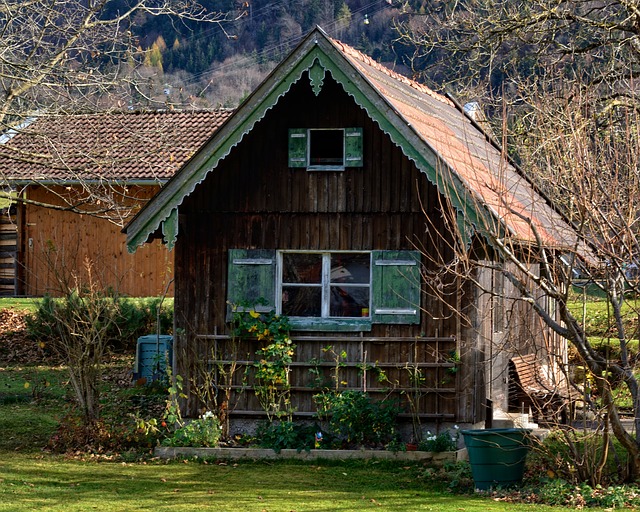
Maintenance Matters: The Ongoing Care Required for Steel and Wooden Farm Sheds in Bendigo
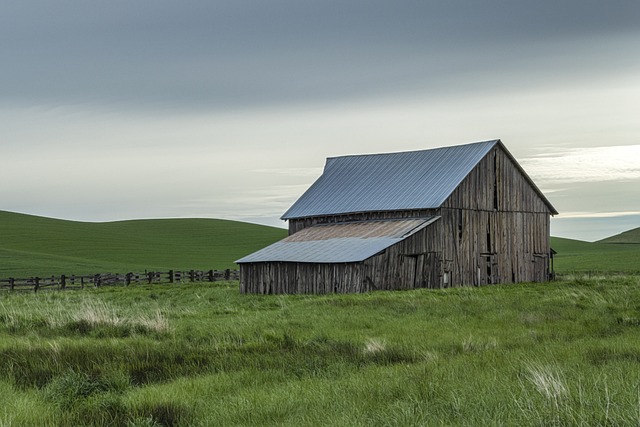
When considering the long-term durability and maintenance of farm sheds in Bendigo, both steel and wooden structures present unique advantages and challenges. Steel farm sheds are renowned for their resilience against the elements, particularly the harsh UV rays that frequently strike Bendigo. This resistance significantly reduces the need for frequent repainting or treatment, a task that can be time-consuming and costly with wooden sheds. Regular upkeep for steel sheds typically involves washing to remove dirt and debris, and occasional touch-ups on the paint to prevent rust, which is minor compared to the extensive maintenance required by wooden counterparts.
In contrast, wooden farm sheds in Bendigo require more hands-on care. They are susceptible to weathering, with wood expanding and contracting in response to fluctuating temperatures and humidity levels. This can lead to warping, rotting, or even pest infestations if not properly maintained. The maintenance regimen for wooden sheds includes regular painting or staining to protect the wood from environmental factors, as well as inspections for signs of damage or decay. Additionally, any structural issues must be promptly addressed to ensure the longevity and safety of the shed. Both steel and wooden farm sheds require a commitment to maintenance to perform optimally over time, but the nature of this care is distinct in each material type. Farmers and property owners should carefully weigh these maintenance considerations when deciding between steel and wooden farm sheds for their Bendigo properties.
Customization Capabilities: Tailoring Your Farm Shed to Suit Unique Needs and Aesthetics in Bendigo
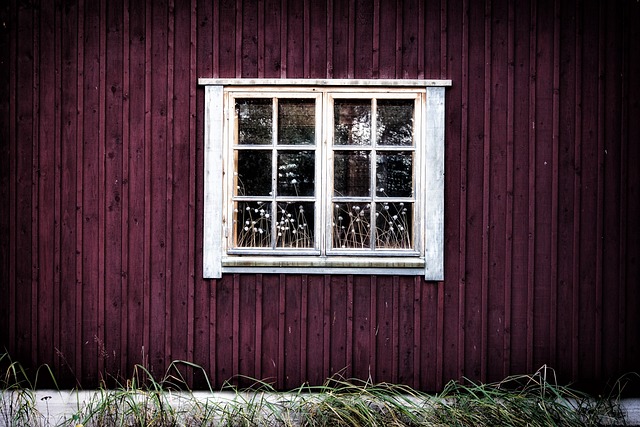
In Bendigo, the versatility of farm sheds as structures for agricultural storage or additional space on a property is unmatched. When it comes to customization capabilities, both steel and wooden farm sheds offer distinct advantages tailored to unique needs and aesthetics. Steel farm sheds are renowned for their adaptability, with designs that can be fine-tuned to specific dimensions, styles, and functionalities. They are particularly adept at accommodating large machinery or providing covered areas for livestock. Steel’s resilience against the elements, including Bendigo’s variable climate, ensures these structures endure, making them a popular choice for their robustness and low maintenance requirements.
On the other hand, wooden farm sheds exude a traditional charm that complements the picturesque landscapes of Bendigo. Their customization options range from traditional barn styles to more contemporary designs. Wooden sheds offer a level of versatility in aesthetics, allowing for a variety of finishes and treatments that can blend with the natural surroundings or stand out as a focal point on the farm. The choice between steel and wood often comes down to the desired lifespan of the structure, the specific requirements for durability and weather resistance, and the preferred visual impact on the property. Both materials offer unique benefits, and selecting the right one depends on the individual farmer’s needs and the prevailing conditions in Bendigo.
Environmental Impact: Evaluating the Eco-Friendliness of Steel and Wooden Farm Sheds in Sustainable Agriculture Practices
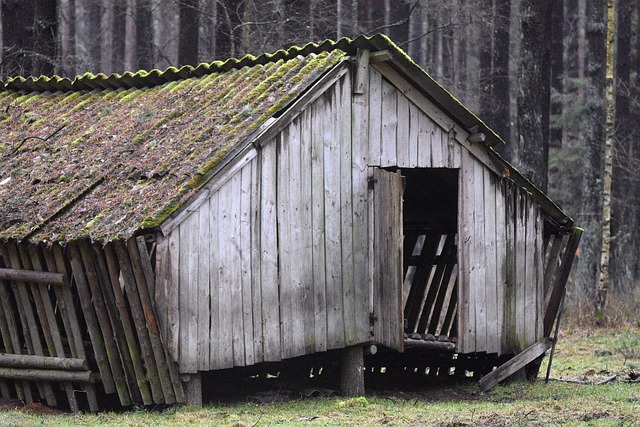
Steel and wooden farm sheds serve as critical infrastructure on agricultural lands, providing shelter for equipment, livestock, and crops. When assessing their environmental impact within sustainable agriculture practices, both materials offer unique advantages and considerations. Wooden farm sheds are often touted for their natural insulation properties, which can reduce energy consumption for temperature control. Additionally, when sourced from sustainably managed forests and constructed with eco-friendly practices, wood can be a renewable resource that sequesters carbon. However, the lifecycle analysis of wooden farm sheds must account for deforestation, energy used in processing, and maintenance treatments that may release harmful chemicals over time.
In contrast, steel farm sheds are prized for their durability and longevity, often lasting several decades without significant deterioration. Steel’s manufacture involves energy-intensive processes, including the extraction of iron ore and coal. However, modern steel production can be less environmentally impactful when facilities adopt advanced technologies and utilize recycled materials, which significantly reduces the carbon footprint. Furthermore, steel sheds’ reflective surfaces can minimize heat absorption, potentially lowering cooling needs in warmer climates. Both options require careful consideration to optimize their role in sustainable agriculture. The choice between steel and wooden farm sheds should be guided by a comprehensive evaluation of local resource availability, the environmental impact of transportation, the shed’s intended use, and the commitment to sustainable practices throughout the shed’s lifecycle.
In Bendigo’s dynamic agricultural landscape, selecting the most suitable farm shed is a pivotal decision for farmers and ranchers. After a thorough examination of durability, cost, maintenance, customization, and environmental impact, it’s evident that both steel and wooden farm sheds offer unique advantages. Steel structures stand out for their exceptional longevity and resistance to Bendigo’s diverse weather conditions, presenting a cost-effective solution over time despite higher initial investment. Conversely, wooden sheds provide a customizable and often more visually integrative option, with lower upfront costs that come with a need for regular maintenance to ensure their longevity. Ultimately, the choice between steel and wooden farm sheds hinges on individual needs, budget considerations, and environmental priorities. Both options contribute to sustainable agriculture practices, albeit in different ways. Farmers in Bendigo can make an informed decision that aligns with their operational goals and environmental values, ensuring their investment remains robust and beneficial for years to come.
